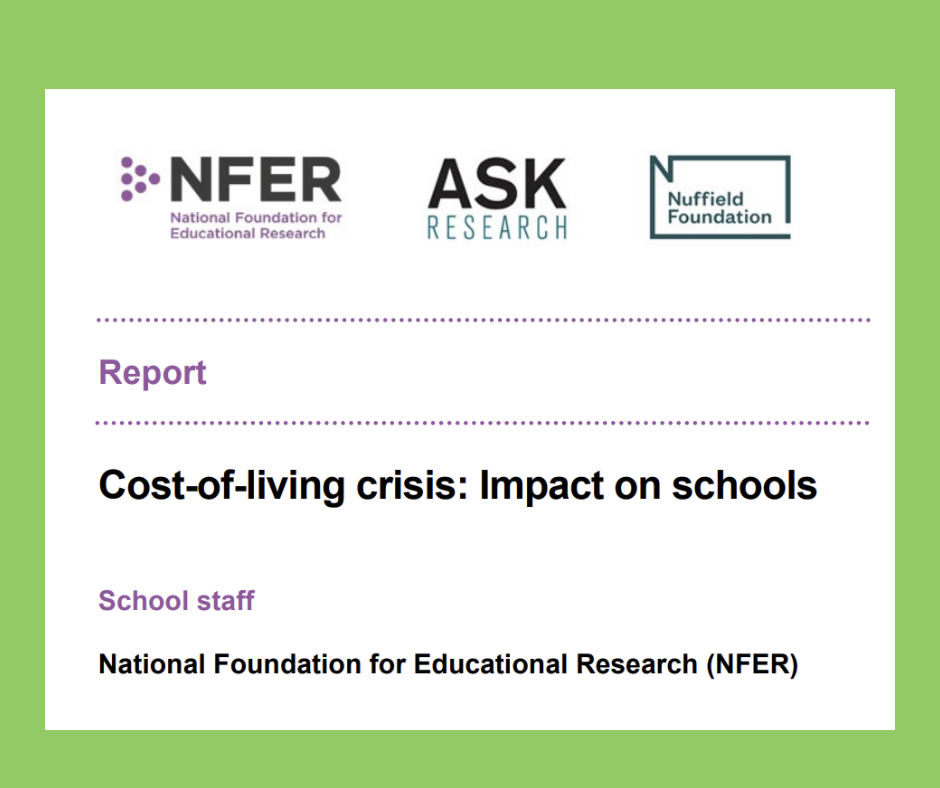 In September, the National Foundation for Education Research (NFER) last launched its final research report into the impact of the cost-of-living crisis on schools. This final report of a series of three provides an interesting read around the impact of the cost-of-living crisis on school staff.
In September, the National Foundation for Education Research (NFER) last launched its final research report into the impact of the cost-of-living crisis on schools. This final report of a series of three provides an interesting read around the impact of the cost-of-living crisis on school staff.
Its key findings underpin what we and others across the education sector have been telling the Department of Education for a while around the impact of the crisis on recruitment and retention of staff and the impact on the wellbeing of school staff across the board. The key findings include:
- Less than half of teachers can afford to pay an unexpected expense outright
- Teacher, teaching assistant (TA) and support staff recruitment and retention challenges have been exacerbated by recent cost-of-living pressures
- School leaders report teachers and teaching assistants (TAs) leaving school because they can earn more in other jobs and that TAs are taking second jobs alongside their TA role for the first time
- Among schools who had to recruit support staff over the last 12 months, 90 per cent of special schools, 80 per cent of primaries and 75 per cent of secondaries report difficulties recruiting support staff
- Large numbers of TA and other support staff vacancies remained vacant for more than two months, especially among special schools
This report is the third in a three-part series, funded by the Nuffield Foundation and conducted in collaboration with ASK Research, which aims to explore how the cost-of-living crisis is affecting schools. All reports can accessed here: Cost-of-living crisis: Impact on schools - NFER
Responding to challenges faced by special schools
The SEN education sector faces pressing challenges in recruitment and retention of its workforce. Recognising the urgency of these issues, NASS has held a number of collaborative workshops with representatives from member schools to understand, address and innovate solutions for these challenges.
Findings and strategies from these sessions will be presented to members at the 2023 NASS Conference.